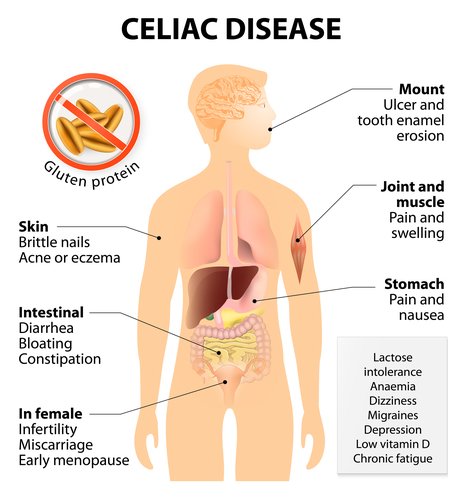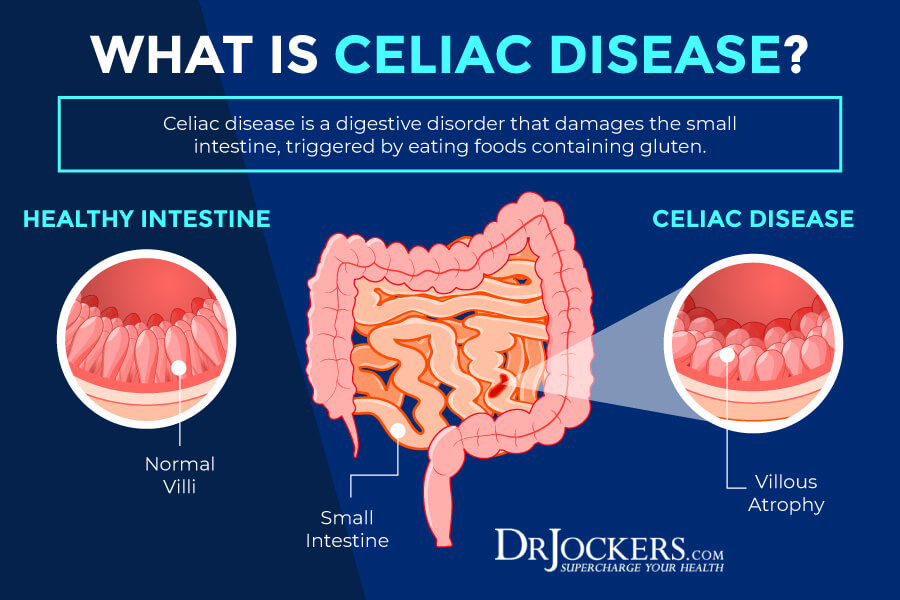can celiac disease cause fatigue Strive for good health
Today, we will be discussing an important topic that affects a significant portion of the population - celiac disease. Celiac disease is a complex autoimmune disorder that is triggered by the consumption of gluten, a protein found in wheat, barley, and rye. It is estimated that 1 in 100 people worldwide suffer from celiac disease, making it more common than previously thought.
Can Celiac Disease Cause Weight Gain?
There is a common misconception that individuals with celiac disease always experience weight loss. While weight loss is a common symptom, it is essential to understand that weight gain can also occur in some cases. Celiac disease can affect individuals differently, causing a wide range of symptoms or, in some cases, no symptoms at all. Weight gain in celiac disease is often related to several factors.

Understanding the Mechanism
Individuals with celiac disease have an immune reaction to gluten, which leads to inflammation and damage to the small intestine. This damage can impair the absorption of essential nutrients, including proteins, carbohydrates, fats, vitamins, and minerals. When the body cannot absorb these nutrients efficiently, it may result in malnutrition and subsequent weight loss.
However, in some cases, the damaged intestine may still partially absorb certain nutrients, particularly carbohydrates and fats. This can lead to the body storing these nutrients and excess calories, resulting in weight gain instead of weight loss.
The Role of Gluten-Free Diet
As celiac disease is primarily triggered by the consumption of gluten, the most effective treatment option is a lifelong gluten-free diet. By eliminating gluten from the diet, individuals with celiac disease can allow their small intestine to heal, reducing inflammation and improving nutrient absorption.

Adherence to Gluten-Free Diet
While a gluten-free diet is crucial for managing celiac disease, studies have shown that individuals with celiac disease may still face challenges in maintaining a completely gluten-free lifestyle. Cross-contamination of foods, mislabeling, and hidden sources of gluten in processed foods can make it challenging to adhere strictly to the diet.
It is essential for individuals with celiac disease to educate themselves on reading labels carefully and to be aware of potential sources of gluten. Seeking guidance from a registered dietitian who specializes in celiac disease can also be immensely helpful in developing a well-balanced and gluten-free meal plan.
Conclusion
Celiac disease is a serious autoimmune disorder that affects individuals worldwide. While weight loss is a common symptom, weight gain can also occur in some cases due to impaired nutrient absorption and storage. The most effective treatment option for individuals with celiac disease is adhering to a gluten-free diet, which allows the small intestine to heal and improves overall health.
If you suspect that you may have celiac disease or are experiencing unexplained weight changes, it is crucial to consult with a healthcare professional. They can provide accurate diagnosis, guidance, and support to help you manage the condition effectively and improve your quality of life.
If you are searching about Coeliac disease | Medical Junction you’ve visit to the right page. We have 5 Pics about Coeliac disease | Medical Junction like Coeliac disease | Medical Junction, Gluten-Free #sogoodCeliac Disease FactsLoving life as gluten-free #sogood! and also Can Celiac Disease Cause Weight Gain? - Club Gluten Free. Here you go:
Coeliac Disease | Medical Junction
 medical-junction.comdisease coeliac
medical-junction.comdisease coeliac
Strive For Good Health
 www.striveforgoodhealth.comceliac
www.striveforgoodhealth.comceliac
Gluten-Free #sogoodCeliac Disease FactsLoving Life As Gluten-free #sogood!
 glutenfreesogood.comceliac
glutenfreesogood.comceliac
Can Celiac Disease Cause Weight Gain? - Club Gluten Free
 clubglutenfree.comceliac
clubglutenfree.comceliac
Pin On Gastro
 nl.pinterest.comceliac abdominal rash jawab seputar tanya odai dampaknya distension
nl.pinterest.comceliac abdominal rash jawab seputar tanya odai dampaknya distension
Coeliac disease. Strive for good health. Can celiac disease cause weight gain?